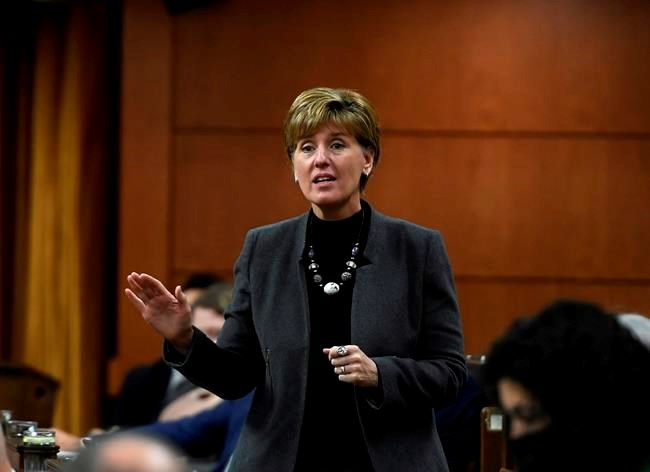CALGARY — The federal government has expanded a program to include the agricultural sector in coming up with solutions to reduce greenhouse gas emissions.
Federal Agriculture Minister Marie-Claude Bibeau has announced the creation of nine new Living Labs across the country, including in British Columbia, Alberta, Saskatchewan, New Brunswick, Nova Scotia and Newfoundland and Labrador at a cost of $54 million.
Each lab, which brings together farmers and scientists, will focus on identifying innovative technologies and on-farm management practices that can be adopted by farmers countrywide to tackle climate change.
"Across Canada, farmers are on the front lines of climate change and Alberta is no exception," Bibeau said Thursday at a news conference in Calgary.
"It's a made-in-Canada approach that gets research out of the lab and onto real working farms. Together, they develop and test practices and technology that help a farmer protect the environment and grow the business."
Alberta Beef Producers is managing one of two projects approved in Alberta.
It intends to explore the use of beef, forage and cropping systems to improve carbon storage and reducing emissions. It is expected to look at crop rotations, changes in land use, grazing techniques, livestock and nutrient management.
"Agriculture producers do absolutely recognize the importance of our continued efforts to improve carbon sequestration, reduce greenhouse gas emissions and mitigate aspects of climate change while ensuring farms remain competitive, profitable and especially sustainable for future generations," said Melanie Wowk, the group's chair.
Another project is the Indigenous-led Bridge to Land Water Sky project in Saskatchewan, which will see producers and First Nations work toward a common goal of improving the surrounding environment while committing to the protection of Indigenous values, treaties, communities, lands and resources.
The initiative was first introduced in 2018 and Bibeau said the goal is to have at least one living lab in each province with more announcements coming in the near future.
"The way we use and manage the millions of acres of farmland across Canada will play a key role in addressing climate change and feeding the world," Bibeau said.
"Our efforts are accelerating the sector’s ability to respond to climate change, all while working to ensure global food security."
This report by The Canadian Press was first published July 14, 2022.
Bill Graveland, The Canadian Press



